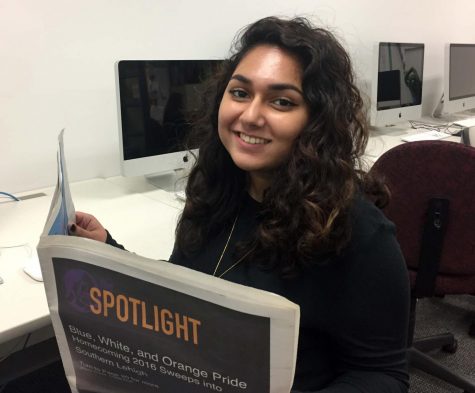Vaccinations: Give It a Shot
Parents always want to do what is best for their children. Small gestures go a long way, such as always making sure your child is wearing a seatbelt, packing them healthy lunches, or making sure they get enough sleep. Many parents question the safety of vaccinating their children, but they don’t understand that it is one of the most important ways to keep a child healthy.
“It is a guardian’s duty to vaccinate their children not only for their children’s health, but for the health of others,” sophomore Emma Duane said. “After job shadowing a pediatrician and speaking with her, she said that a legislation is trying to be put into place to, in some cases, force students to receive vaccines. I feel that it is one’s responsibility to keep their children healthy, where therefore keeps other kids healthy as well.”
The main purpose of a vaccination is to prevent someone from getting a communicable disease that has caused death or disability in the past. Immunization can even protect future generations from certain diseases. Vaccines have reduced, and in some cases even eliminated, many diseases, such as smallpox, measles, diphtheria, and polio.
“There are many reasons why parents would not want to vaccinate their kids, such as ethical, religious, and medical,” Southern Lehigh High School nurse Merrilyn Pysher said. “What I usually hear is that they’ve read an invalid article on negative side effects that could happen. But truthfully, the chance that something bad will happen to you when you are vaccinated is much less than the chance you will contract a disease if you are vaccinated.”
Prior to the development of vaccines, one out of every five children died before age five from illnesses such as polio and measles that are now preventable through vaccines.
“Now that we do vaccines, children are living longer,” St. Luke’s pediatrician Elizabeth Gibson said. “Parents should definitely look at statistics when they’re questioning whether or not to vaccinate their kids. They’ll be able to see the increase of life expectancy with the increase of vaccinations. I always tell parents, ‘anything I recommend for your children, I recommend for my own children.’”
There are many misunderstandings about the effects of vaccines. One of the most popular theories is that vaccines are directly related to the development of autism. In the 1980’s, a study was conducted where British doctor Andrew Wakefield concluded that there was a direct link from the MMR vaccine to autism. These studies have been completely discredited, and Dr. Wakefield has lost his medical license.
“A reason parents think the MMR vaccine is linked to autism is because we give the MMR vaccine at age one,” Dr. Gibson said. “Signs of autism are usually first noted around that age, so the first thing parents do is think, ‘Oh, it must have been that vaccine,’ but there were always developmental issues. In England, they stopped giving the MMR shot for a period of time. The rates of autism continued, but the rates of measles and mumps increased.”
Vaccines simply give your body immunity to fight against a disease if it enters your body. Most vaccines contain a small amount of dead or weak disease germs. Your body reacts to this germ by creating antibodies, which is a protein that helps to trap and kill germs that could lead to disease. The next time a disease germ enters your body, the antibodies recognize it and are ready to eliminate it.
“Another misconception is that we’re not using our natural immunity when we’re vaccinating, but we’re actually using our natural immunity to our benefit,” Pysher said. “We’re being exposed to something that will help us use our natural immunity to help our antibodies.”
In December 2014, there was a large outbreak of measles in Orange County, California. At least 40 people who were visiting or working at Disneyland contracted measles due to an unvaccinated child.
If more parents continue to refuse to vaccinate their kids, it will result in a huge loss of herd immunity. Right now, the majority of society vaccinating their kids are affecting the children who aren’t vaccinated, and the loss of that would be devastating. In a community, everyone needs to look out for one another so we can protect everyone else around us. So in all seriousness, get vaccinated.

Senior Izza Choudhry is a four-year staff reporter and former one-year copy editor and one-year news editor, now serving as opinion editor for the Spotlight....

